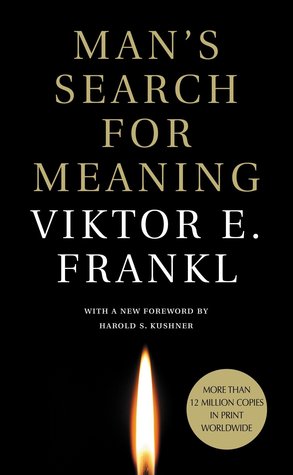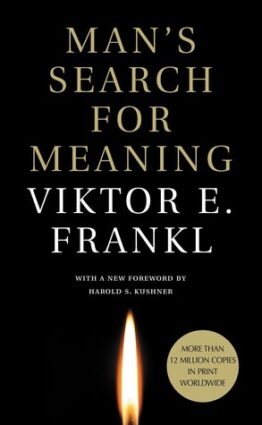
“Everything can be taken from a man but one thing: the last of the human freedoms—to choose one’s attitude in any given set of circumstances, to choose one’s own way.”
― Viktor E. Frankl, Man’s Search for Meaning
Viktor Frankl’s Man’s Search for Meaning is widely recognized as one of the most influential books of our time. It chronicles his experiences as a concentration camp inmate and describes his psychotherapeutic method of finding meaning in all forms of existence, even the most traumatic ones.
Frankl was so precocious and intuitive that he first spoke publicly about the meaning of life when he was only 15 years old and began corresponding with the founder of psychoanalysis, Sigmund Freud. Upon earning his doctorate in medicine in 1930, Frankl began his medical career at the Maria Theresien Schloessl, a Neurological Hospital in Vienna founded by the Nathaniel Rothschild Foundation. In 1933 he joined the staff of the Steinhof psychiatric hospital in Vienna, where he headed the female suicide prevention program.
Then the Nazis came to power. After Germany annexed Austria in 1938, they forced him to close his private practice because he was Jewish. He had to adopt the middle name “Israel” and call himself “Fachbehandler” (Specialist) instead of physician. In 1940, he was named the chief of neurology at Vienna’s Rothschild Hospital, which served the Jewish population. Despite personal risk, he sabotaged Nazi attempts to euthanatize mentally ill patients. Frankl married Tilly Grosser, a nurse with whom he worked. A short time later, the Nazis force the young couple to have their child aborted.
In September 1942, the occupying forces deported Frankl and his family to Terezin Ghetto, north of Prague (also known as the Theresienstadt concentration camp), where his father died. In 1944, the surviving Frankls were taken to Auschwitz, where his 65-year-old mother was immediately sent to the gas chamber. After a few days, they transferred Frankl to a labor camp. They brought him to Kaufering and, later, Tuerkheim, subsidiary camps of Dachau in Bavaria.
On April 27, 1945, US troops liberated Tuerkheim. Viktor Frankl was devastated when he learned the Nazis had murdered his wife, father, mother, and brother. The following year, he wrote his classic book, Ein Psycholog erlebt das Konzentrationslager (A Psychologist Experiences the Concentration Camp), which was published in English in 1959 as Man’s Search for Meaning. The book had sold over 16 million copies worldwide and has been translated into 24 languages.
Based on Frankl’s own experience and the stories of his patients, Man’s Search for Meaning argues that we cannot avoid suffering, but we can choose how to cope with it, find meaning in it, and move forward. He penned one profound statement after another, citing anecdotes from his life and the lives of others he met in the camps. One of his key strategies was to focus on the love he had for his wife, not knowing if she was dead or alive. “I understood how a man who has nothing left in this world still may know bliss, be it only for a brief moment, in the contemplation of his beloved. In a position of utter desolation, when man cannot express himself in positive action, when his only achievement may consist in enduring his sufferings in the right way—an honorable way—in such a position man can, through loving contemplation of the image he carries of his beloved, achieve fulfillment.”
Overall, I had some issues with his composition, but it isn’t the writing that has drawn to people to his book for decades—it is the message. “… there was no need to be ashamed of tears, for tears bore witness that a man had the greatest of courage, the courage to suffer.” 5 stars.
Published Date: January 1946
Genres: Memoir, self-help, spirituality
Read-alikes: Unbroken by Laura Hillenbrand; The Happiest Man on Earth, by Eddie Jaku; The Choice by Edith Eva Eger.
